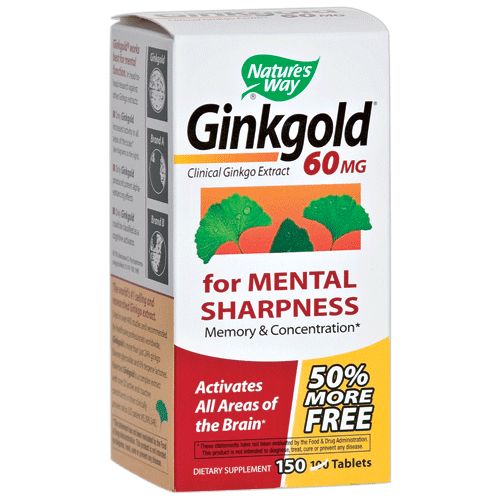 Plaintiff Kathleen Sonner, on behalf of the Class she seeks to represent, recently filed an opposition to a motion to dismiss her Ginkgold class action lawsuit.
Plaintiff Kathleen Sonner, on behalf of the Class she seeks to represent, recently filed an opposition to a motion to dismiss her Ginkgold class action lawsuit.
Sonner filed a class action lawsuit in July against subsidiary Nature’s Way and parent company Schwabe North America Inc. alleging false advertising for their Ginkgold ginkgo biloba supplements.
In the defendants’ motion to dismiss the Ginkgold class action lawsuit, filed in August, the companies expressed that since Sonner is aware of the alleged false advertising by their companies, her claim for injunctive relief doesn’t hold because she was unlikely to be harmed again by the product.
Sonner countered back that she is seeking to represent consumers who are unaware of the nature of the alleged false advertising claims, and following the logic of the defendants’ reasoning, the whole purpose of California consumer laws would be pointless.
While she only purchased one of the products, Sonner seeks to challenge both products because of their nearly identical composition. Ginkgold offers 60 mg tablets while Ginkgold Max offers 120 mg tablets, but both include the same ingredient, only in different doses. Both have claims on the label of promises to improve memory, concentration, and mental sharpness, Sonner says.
“The advertising message is false and deceptive. Ginkgold has been extensively studied,” Sonner states in her motion opposing dismissal of the class action lawsuit. “The leading study was published in 2009 in the Journal of the American Medical Association. The study’s source of ginkgo biloba was Ginkgold.” This study, known as the GEM (Ginkgo Evaluation of Memory) study, reportedly found no differences between ginkgo biloba use and placebo.
Several other studies also allegedly revealed that ginkgo biloba does not perform as advertised, leading the plaintiff to classify the supplement as “snake oil.”
The defendants argued previously that Sonner could not properly support her purchase date, and the companies didn’t know if the bottle of Ginkgold ginkgo biloba she bought contained an old label or one that had been “substantially revised.”
Sonner stated in her 101 paragraph Ginkgold class action lawsuit, complete with pictures and descriptions, that the companies’ claim of substantially changing the label was inaccurate, because the advertising claims for the product being “for mental sharpness” were still a part of the apparently revised label. Sonner states the labeling debate should be considered at the Class certification stage.
Sonner alleges in her opposition motion that the defendants launched “a hodge-podge of misguided attacks.” She says that she does have standing to seek injunctive relief, bring claims relating to identical products sold with the same false advertising message, properly alleges Wisconsin and California Consumer Protection claims and shows reliance for express warranty purposes. Sonner also states that the court should not rule on Class certification in a motion to dismiss the Ginkgold class action lawsuit.
The plaintiffs are represented by Timothy G. Blood, Thomas J. O’Reardon II and Sarah Boot of Blood Hurst & O’Reardon LLP and Todd D. Carpenter of the Carpenter Law Group.
The Ginkgold False Advertising Class Action Lawsuit is Sonner v. Schwabe North America Inc., et al., Case No. 5:15-cv-01358, in the U.S. District Court for the Central District of California.
UPDATE: On Sept. 14, 2016, Class certification was proposed in a Ginkgold lawsuit that accuses the makers of the ginkgo biloba supplement of falsely promoting it as benefiting brain health in ways it actually doesn’t.
UPDATE: On February 2, 2017, the court granted summary judgement in favor of the defendant, putting an end to the Nature’s Way Ginkgold class action lawsuit.
ATTORNEY ADVERTISING
Top Class Actions is a Proud Member of the American Bar Association
LEGAL INFORMATION IS NOT LEGAL ADVICE
Top Class Actions Legal Statement
©2008 – 2026 Top Class Actions® LLC
Various Trademarks held by their respective owners
This website is not intended for viewing or usage by European Union citizens.















2 thoughts onGinkgold False Ad Class Action Lawsuit Shouldn’t Be Dismissed, Plaintiff Says
UPDATE: On February 2, 2017, the court granted summary judgement in favor of the defendant, putting an end to the Nature’s Way Ginkgold class action lawsuit.
UPDATE: On Sept. 14, 2016, Class certification was proposed in a Ginkgold lawsuit that accuses the makers of the ginkgo biloba supplement of falsely promoting it as benefiting brain health in ways it actually doesn’t.